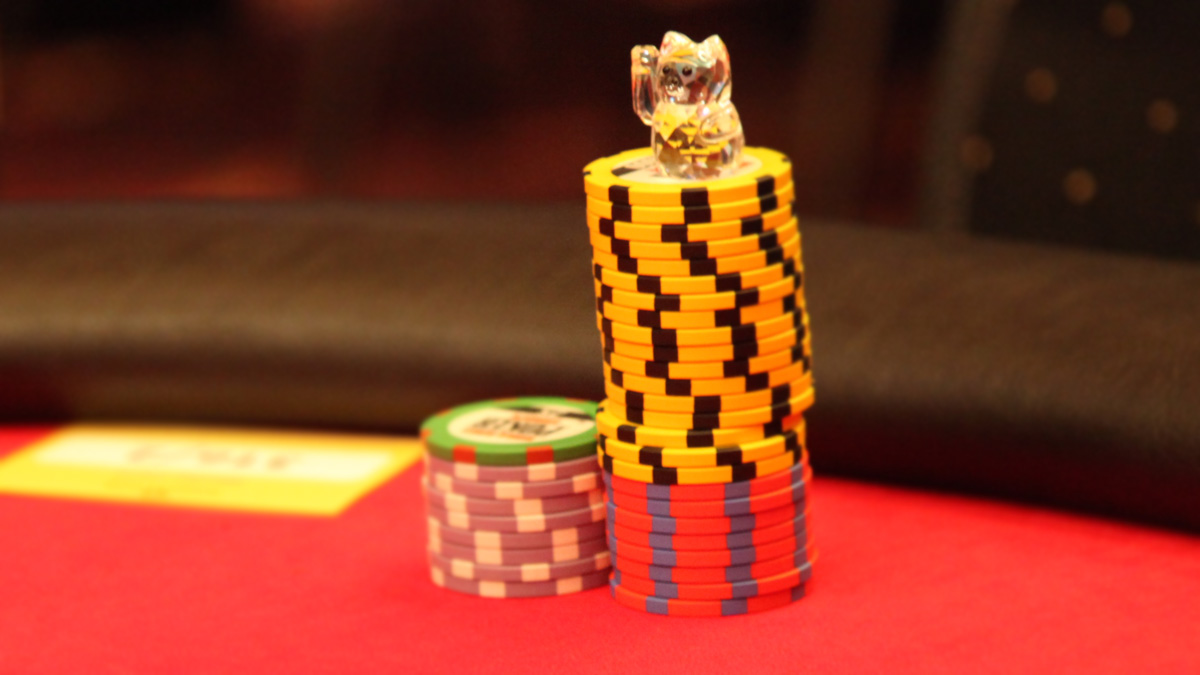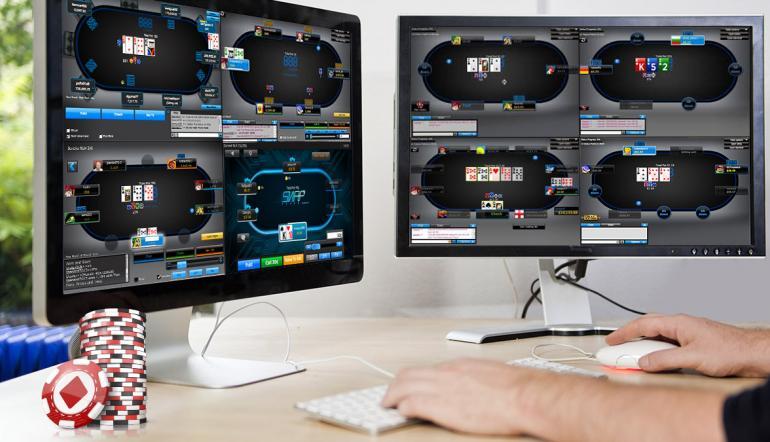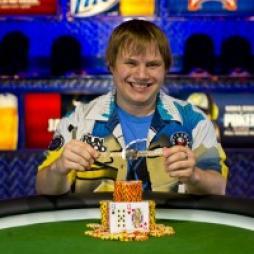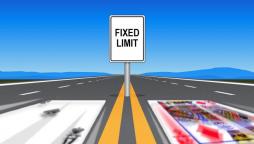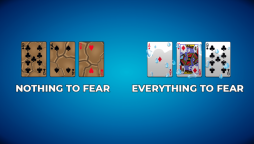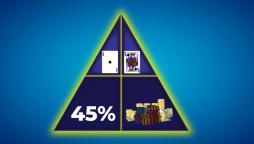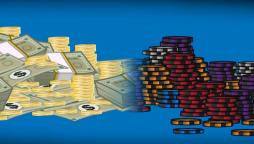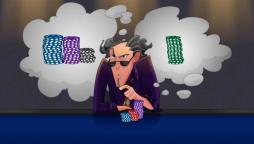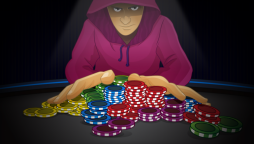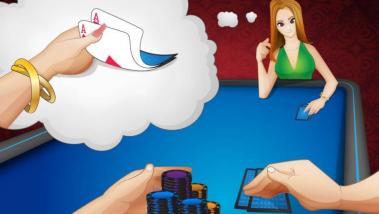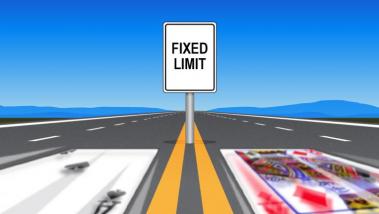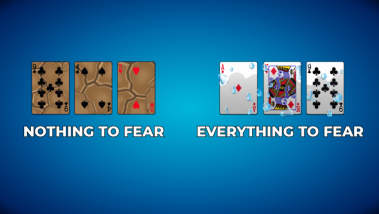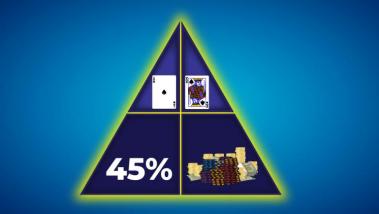Most people are first exposed the thrill of the poker through a TV show, showcasing a prestigious tournament or high-stakes cash game. Alternatively, others may first be introduced to poker through a party night or a “home game” they have in college. Regardless of how you first learn about poker, it’s not unreasonable to assume that almost every new player has (or once had) a hidden ambition, deep within, to ultimately win incredible sums of cash playing poker.
Who wouldn't jump at the chance to go from amateur to professional in a flash?
While becoming a millionaire poker player may be such a long shot that even some of the best pros aren't able to get there, it’s not unheard of to be able to make a living strictly from playing poker. Whether it’s from grinding cash games or winning tournaments, playing live or online, it is possible to become a professional poker player by supporting yourself playing this popular card game.
Let’s discuss what it really takes to “go pro” and make a full-time living from the felts.
What does it take?
Before we get to the exciting parts of “Going Pro,” let’s be honest for a minute. Being a poker pro isn’t simply all fun and games. While TV shows and short video segments on certain top name players have glorified the lifestyle of a professional, the reality is that it can be a gruelling.
For the purposes of this eBook, let’s make a general assumption that the areas of your life can be broken down into three distinct parts:
- Relationships
- Health
- Wealth
There are no two ways about it: Poker can be an addictive game. If you end up getting up to the professional level of the game, it can be quite easy to dedicate so much time to it that the other areas of your life start to suffer. Too much of anything can affect your well-being on the whole – and poker is no exception to the rule.
1. Relationships
Poker can be quite detrimental when it comes to allowing you to lead a normal, healthy social life. Because so much of your time will be spent at the tables, it can be difficult to find the time for friends and other activities outside of poker.
For this reason, a lot of your friends will be other poker players. You’ll be able to discuss hands with them, talk about upcoming tournaments, see how they’re doing at the game, etc. Overall, you’ll be able to connect with them on many levels (both at and away from the poker table) because you both are consumed deeply by the same interest – poker!
However, while you may be gaining new friendships from the game, it’s also important to take into consideration the effect that playing poker will have on your relationships with your family and/or partner.
For example, weekends – time that families would usually spend together – are prime times for poker players to play because that’s when there’s the most fish playing, and it’s also when the biggest weekly tournaments are held.
In addition to weekend availability likely causing some havoc on relationships, not having any set hours for pros to play can also be detrimental (because they can’t always just get up and leave at any time). For example, If a cash game table is juicy with fish or if you’re running deep in a few tournaments, you really can’t (and shouldn’t) stop playing. Therefore, it can be especially difficult to plan family activities together and to guarantee that you’ll be able to have fun with them.
Add on to this the fact that you might travel a lot or frequently spend a lot of time at the casino at night, if you’re a live grinder. It becomes quite apparent that it can be especially difficult to spend time with the important people in your life who matter to you, such as a partner.
That’s why, in order to lead a balanced and well-rounded life, it is important to schedule time outside of the game to still talk to, visit, and interact with family members and old non-poker friends. Perhaps you can dedicate a full day or couple of nights each week where you don’t play any poker and can successfully schedule in family time instead.
It’s quite easy to get “swallowed up” by poker, but it’s also important to be able to get away from it and take a break occasionally, too.
2. Health
Poker players can easily fall into having a very sedentary lifestyle. They sit down, play for hours on end, eat, continue playing even longer, and then ultimately call it a day. Therefore, with poker being similar to a stereotypical office job, where workers typically sit at a desk all day, it’s important to take regular breaks. Stand up. Walk around. Get some fresh air.
Even more importantly, having a proper diet and exercising regularly is paramount when it comes to the topic of “health” as a poker player. It’s easy to eat unhealthy foods and neglect getting the right amount of exercise for anyone- and especially poker players! Add in the long hours you’ll likely grind each day and the periodic traveling from city to city you’ll do for live tournaments, and playing poker seemingly becomes a profession that is sure to doom your physical and mental health from the start.
However, you must abandon these stereotypes and realise that you can (and must!) nurture your mind and body properly in order to be able to perform at your peak potential and thrive on the felts.
Making a healthy poker living involves setting aside time for daily exercise (jogging, walking, going to the gym, etc.) and also eating healthily, so as not to turn your brain to “mush” – causing it to always feel sluggish, degenerating into less than optimal poker decision-making.
3. Wealth
While pro poker players make their living from the game and live off their annual winnings, the struggles in terms of day-to-day bankroll growth and management can be very trying! Imagine having a “normal” job but not knowing whether you’re going to get paid at the end of the day…or week…or month…or year, even! It can be quite a nerve-racking scenario to handle. It doesn’t sound like a fun situation to be in, does it?
Well, you’re exactly right – it’s not! But such is the life of a poker professional, and being an aspiring poker pro, you’re going to have to learn how to take the ups and downs in stride. Even if you have an amazing skill-set and make the best plays in each situation, variance can still beat you, causing you to quickly lose your hard-earned money.
You see, whenever the elements of luck and variance are added brought into the equation, all certainty and steady progress goes out the door. Sure, you can reduce this variance by implementing certain strategies and styles of poker into your gameplay (i.e. small ball). You can apply tried and trusted winning poker strategies that have stood the test of time, but at the end of the day, even if you always get your money in good when it goes into the middle – the bad streaks can (and will) still happen. These downswings can leave you feeling devastated and depressed, forcing you to accept the harsh reality of depleting your income, time, energy, and any bankroll reserves.
Ultimately, as long as you’re a winning player, consistent winnings should not be difficult to attain and maintain over the long run. However, mentally, it can be taxing to deal with losing the same money that you would’ve used to help feed yourself and pay your rent.
Dealing With It Mentally
Even the best poker players in the world have cold streaks. But it’s how they deal with those streaks that defines whether they are truly a professional or merely a hopeful amateur.
The biggest factor that’s required of being a professional poker player is mental resiliency.
Therefore, the biggest factor that’s required to be a professional poker player is mental resiliency. This attribute is something that’s rarely addressed in other mainstream poker training materials!
Poker coaches and mentors may frequently talk about winning poker strategies or proper bankroll management or tips to living a healthy poker lifestyle. And yes, these are all very important in their own right to being a successful poker pro. (In fact, it’s what we will dedicate the later chapters of that eBook to discussing and elaborating upon.)
However, the biggest factor in determining whether or not you will be a successful poker player (and also a substantial difference between amateur and pro) comes down to realising whether you possess the right qualities to become a professional poker player. If you don’t have them currently, then focusing on developing them should be your number 1 priority.
Sure, you might already know and apply optimal poker strategy to your gameplay, but what happens when you start to let emotions start to dictate your lines of play? How do you react when you run into those cold streaks? What happens when you start to lose that bankroll that you’ve worked so hard to build?
Do you keep a calm, composed, and focused demeanour in these difficult situations? Or do you tilt off to higher stakes, and try to regain your losses, all while making poorer decisions and losing even more money?
Therefore, gameplay aside, it’s the mental attitude of poker players that ultimately dictates their success in the long run. Such qualities and personality traits of poker pros may include (but are not limited to) the following:
- Patience
- Discipline
- Emotional Control
- Focus
- Awareness
On the flip side, personality characteristics that may be detrimental to a successful poker career could include the following:
- Being Result-Oriented
- Emotional Instability
- Irritability
- Inattentiveness
- Being a “Problem Gambler” i.e. Someone who plays for a “rush”
If you feel like any of these traits may describe you when you play poker, work over the coming months to reduce and erase these traits. Try to cultivate the more positive characteristics listed above.
Overall, there will certainly be a learning curve as you discover winning strategy and tips for successful play, but it’s important to keep a winning attitude as the most prominent influence on long-term success.
Don’t Let Emotions Run Your Game
“Tilt” is a problem that is all too common amongst poker players. In a nutshell, it’s an emotionally unstable mindset that can frequently occur after a bad beat or a suckout in a poker hand. It makes players act irrationally, causing them to make decisions that are not optimal for winning poker.
While tilt is something that affects amateurs more than anyone, professionals can also be “tilted” at times, which can be especially dangerous when they’re playing with money that’s funding their annual income. Therefore, having a solid framework for a healthy, winning poker mindset and attitude is the biggest prerequisite for a professional poker player.
Players who wish to make the jump from amateur to pro must also ensure they have a good enough skill set for the game. Having winning statistics over a large sample size, and a big enough bankroll can help counteract and balance out variance, that they’ll face along the way.
We’ll discuss more in-depth some of these other prerequisites in the next chapter, but firstly, let’s very briefly discuss why poker is a beatable game.
Why Is Poker Beatable?
You’ve probably already heard the phrase, “the house always wins.” While the same is true for poker (because of the rake and tournament fees that are involved), why is it that there are a number of players who can win over the long run at playing poker versus playing other casino games?
The reason is that poker is a “player vs. player” game. Almost every other form of gambling is “player vs. casino (the house).”
When you have a “player vs. casino” game, the expected value (or EV) is always slightly weighted in favour of the casino. Take roulette, for example. Most people think that if you bet on red or black, you have a 50% chance of winning or losing. The truth is that you have about a 48.6% chance of winning, and the reason for this slight drop is because of the small green tile with the number “0.” The addition of this tile means that the casino ultimately wins about 52% of the time, meaning that over the long run, they will always win more money than the players.
For a “player vs. player” game like poker, it’s certainly possible to be profitable over the long-term, even with the casino rake and fees. Players make decisions and dictate their own EV for every hand against other individuals – those individuals also make their own decisions. Often times, players have certain tendencies that others players can pick up on and exploit to their benefit.
Yes, there is always going to be a certain element of luck involved in poker. But this is a game where you can choose how you play against other people and make +EV decisions every hand based on logic and sound thinking. Therefore, poker is certainly one of the few casino games (if not the only casino game) that is very possible to win at over the long-term.
Types of Poker Players
In this section, let’s briefly discuss the 3 different types of poker players.
Amateur
An amateur poker player is someone who plays poker mainly for recreational and entertainment purposes. Amateurs can be either winning or losing players, in the long run, but one thing’s certain: their primary source of income is something other than poker.
The experience level of amateurs can range from anywhere from brand new to quite seasoned. The majority of players that make up this category either play micro stakes online or the lowest stakes in live play. However, on occasion, it is possible to find “fish” playing higher stakes games, too. In the poker room, amateurs are often called “fish” or “whales,” as they often play an exploitable style of poker, therefore allowing the more skilled “sharks” to feast on them.
Some examples of some well-known amateurs include:
- Chris Moneymaker (2003 WSOP Main Event Champion)
- Guy Laliberté (Cirque du Soleil Founder, High Stakes Cash Player)
- Bill Perkins (Billionaire Businessman, High Stakes Player)
Semi-Professional
A semi-professional poker player is someone who has another primary source of income outside of poker, but simultaneously makes a decent salary playing poker. However small or big their winnings may be, they do not rely solely on poker to make ends meet each month. Semi-professionals usually play between 2-6 hours daily, with the bulk of their hours coming from their “weekend” play – the days they have off from their “normal” day job. Popular, real-life examples of people who play poker semi-professionally are hard to come by, but this category is frequently made up of the following types of people, amongst others:
- College Students
- Micro-Stakes Grinders
- Low-Stakes Grinders (with reduced hours)
Professional
A professional poker player is someone who plays poker for their livelihood, meaning their winnings make up their only (or primary) source of annual income. They likely have big enough bankrolls to support themselves for the losing months, as variance can be cruel to even the top players. Professionals might play online; they might only play at their local card room or casino; they might travel the world to play in some of the most prestigious poker tournaments that someone can buy into. Regardless of where the play, they are the best players that the game of poker has to offer and are most-certainly winning players over the long term. They enjoy dictating their own “work” hours and may live a life that’s congruent with the epitomised lifestyle of a “poker pro.”
Examples of some well-known professionals include:
- Phil Hellmuth
- Phil Ivey
- Chris Moorman
- Dominik Nitsche
- Erik Seidel
In Conclusion
In closing, this chapter has taught us that poker is a beatable game. The major aspects of going pro (and being able to profit from it) focus on your mental resiliency and emotional control, both at and away from the tables.
However, there are other prerequisites and gameplay considerations you must take into account in order to make playing poker profitable and into a successful career. We’ll get into the nuts and bolts of turning pro in the next chapter.







